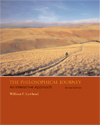| a posteriori knowledge | knowledge based on, or posterior to, experience
|
 |
 |
 |
| a priori knowledge | knowledge justified independently of, or prior to, experience
|
 |
 |
 |
| constructivism | the claim that knowledge is neither already in the mind nor passively received from experience but that the mind constructs knowledge out of the materials of experience
|
 |
 |
 |
| correspondence theory of truth | a theory that states that (1) reality has a determinant, objective character, and (2) a belief or statement is true or false to the degree to which it corresponds to or represents the objective features of reality
|
 |
 |
 |
| cultural relativism | the claim that all beliefs are relative to a particular culture
|
 |
 |
 |
| empirical | based on experience
|
 |
 |
 |
| empiricism | the claim that sense experience is the sole source of our knowledge about the world
|
 |
 |
 |
| epistemological relativism | the claim that there is no universal, objective knowledge of reality because all knowledge is relative to either the individual or his or her culture
|
 |
 |
 |
| epistemology | the area of philosophy that deals with questions concerning knowledge and that considers various theories of knowledge
|
 |
 |
 |
| feminism | a movement within philosophy and other disciplines that (1) emphasizes the role of gender in shaping how we think and how society is structured, (2) focuses on the historical and social forces that have excluded women from full participation in the intellectual and political realms, and (3) strives to produce a society that recognizes women and men as both different and equal
|
 |
 |
 |
| historical relativism | the claim that each historical age had different conceptual frameworks such that there are no universal truths but only truths that are correct for a particular age
|
 |
 |
 |
| idealism | the position that maintains that ultimate reality is mental or spiritual in nature
|
 |
 |
 |
| innate ideas | ideas that are inborn; ideas or principles that the mind already contains prior to experience
|
 |
 |
 |
| noumena | in Kant's theory, the things-in-themselves that exist outside our experience
|
 |
 |
 |
| objectivism | the claim that there is one set of universal truths or facts about the world and that these truths are independent of us
|
 |
 |
 |
| perspectivism | the theory that there cannot be any uninterpreted "facts" or "truths," because everything we encounter is seen from one perspective or another
|
 |
 |
 |
| phenomena | in Kant's theory, the things-as-they-appear-to-us that exist in the world of our experience, which is partially constructed by the mind
|
 |
 |
 |
| pragmatism | a philosophy that stresses the intimate relation between thought and action by defining the meaning of our conceptions in terms of the practical effects we associate with them and the truth of our beliefs in terms of how successfully they guide our actions
|
 |
 |
 |
| primary qualities | the properties of an object that can be mathematically expressed and scientifically studied, that is, the properties of solidity, extension, shape, motion or rest, and number
|
 |
 |
 |
| principle of induction | the assumption that the future will be like the past
|
 |
 |
 |
| rationalism | the claim that reason or the intellect is the primary source of our fundamental knowledge about reality
|
 |
 |
 |
| representative realism | the view that we do not directly experience external objects, but their primary qualities (such as shape and size) produce ideas in us that accurately represent these real properties of the objects
|
 |
 |
 |
| secondary qualities | the properties of an object that are subjectively perceived, that are the effects the object has on our sense organs, and whose appearances are different from the object that produces them, that is, the properties of color, sound, taste, smell, and texture
|
 |
 |
 |
| skepticism | the claim that we do not have knowledge
|
 |
 |
 |
| subjectivism | the claim that beliefs are relative to each person's individual perspective
|
 |
 |
 |
| synthetic a posteriori knowledge | knowledge that is based on experience and that adds new information to the subject
|
 |
 |
 |
| synthetic a priori knowledge | knowledge that is acquired through reason, independently of experience, that is universal and necessary, and that provides information about the way the world is
|
 |
 |
 |
| uniformity of nature | the thesis that the laws of nature that have been true thus far will continue to be true tomorrow
|
 |
 |
 |
| universal belief falsifiers | strategies used by skeptics to attack knowledge claims by showing that there are possible states of affairs that would prevent us from ever distinguishing true beliefs from fake ones
|



 2003 McGraw-Hill Higher Education
2003 McGraw-Hill Higher Education